April 16, 2021
No one likes the Grammar Police, I get it. You want to send out your Christmas cards with the unnecessary apostrophes in the return address, you want to write “apart” when what you actually mean is “a part,” you want to say “irregardless” because you think it sounds fancy, and you want to do all of those things without an irritating schoolmarm tsk-ing her tongue at you. Just let us use bad grammar in PEACE, Elisa.
Fine. I’ll let those things slide. I mean, I’m going to notice, of course I’m going to notice. But it’s not like I’m going to write Return To Sender on every one of those Christmas cards, or point out that when you write “gosh, I’m just so happy I got to be apart of that wedding” you actually kinda mean the opposite of what you think you mean, and I won’t scream when you say “irregardless” (but so help me if you go so far as to say “irregardlessly”). I don’t know why you’re doing/saying/writing those things, but I’ll leave it alone.
But I have to literally draw the line, literally lay down the law, literally fly off the handle at the literal misuse (and overuse) of the word “literally,” because otherwise my brain is literally going to explode.
Grammar 101: Literally means “actually,” not “figuratively.” If you say that someone is screaming bloody murder, we all know what you mean: You mean that someone is screaming, frantically and at the top of their lungs. But if you decide to inject an extra word into that sentence — if, for some reason, you choose to say that someone is literally screaming bloody murder — then what you now mean is that there is a person who is running around, shouting at the top of their lungs “MURDER! BLOODY MURDER!” Yes. That IS what you mean. Because you. just. said. that’s. what. they. are. literally. doing.
As an interesting side conversation, there are a whole bunch of words which have become their own opposites, and they’re called contranyms. So for instance, cleave can mean “to stick together” or “to separate,” and sanction can mean “to give official permission” or “to impose a penalty.” Once upon a time, the word nice was an insult, but now we use it as a lukewarm compliment. Each of those could be a fun study (mm-hm, yeah, I said “fun”) in its own right, but they all have to do with the evolution of language.
And speaking of the evolution of language, did you know that there are disputes in the linguistic world about whether dictionaries should be prescriptive or descriptive? Meaning, do dictionaries tell us what words are supposed to mean, or what they do mean? They generally do a little bit of both (more on that in one of the articles I linked above), but that’s why it’s big news every year — at least, it’s big news to word nerds and cultural commentators — when the major dictionaries of the world announce the changes they’re making. Over the last few years, hundreds of words have been added to the Oxford and Merriam-Webster dictionaries and dictionary.com pertaining to things like technology, identity, and, most recently, Covid, and thousands of already existing words have received updates to their definitions. (See the latest updates to Merriam-Webster here, dictionary-dot-com here, and Oxford here.)
The word “literally” has long been on the brink of becoming a contranym (you can read an enlightening and slightly humorous post about it here), as evidenced already in the secondary definition provided by most major dictionaries, but folks have really gone whole-hog on the not-actually-literal usage in recent years. If our grandkids are all going to think that the primary definition of literally is “figuratively,” fine. But as an homage to the good ol’ days when people meant what they said, I present to you the following series of cartoons, drawn by my talented sister, and based on things we’ve really heard people say.
If you recognize something you’ve said on this list, I’m sorry for exploiting your words for humorous gain. If it gives you any comfort, just know that one of these entries was uttered by none other than…ME. {A collective gasp of shock is heard.} Yeah. I get petty when I fight.
But let’s leave marital spats aside and move on to the good stuff — illustrations of what it might look like if people literally meant the figurative things they said:
I’m glad no one really meant those things literally. Glad that girl’s heart didn’t really spontaneously combust when she read those kind words. Glad that poor fellow’s legs didn’t really break violently off. And yes, it was a gross overreach for me to accuse my husband of constant criticism. (You’re critical of LITERALLY EVERYTHING, I said, and he answered in a definitely critical voice Really, Elisa? Everything? and I narrowed my eyes and clenched my teeth adorably and said See, you’re being critical of me RIGHT NOW and then the argument turned more hilarious than spiteful because we had clearly strayed into absurd territory, and after re-reading this post it’s pretty clear who the critical one is anyway.)
I’ll end here, with me wearing a hat that I have a serious love/hate relationship with. It was given to me by our team at Showit a few years back, and I can only assume they wanted to see if they could make my head literally (literaly?) explode, but thankfully I survived. Barely. Until next time, friends, may your happiness be literal and the explosions of your happy hearts and heads be only figurative. xoxo
Literally The Best Blog Post, Literally Ever, Part 1
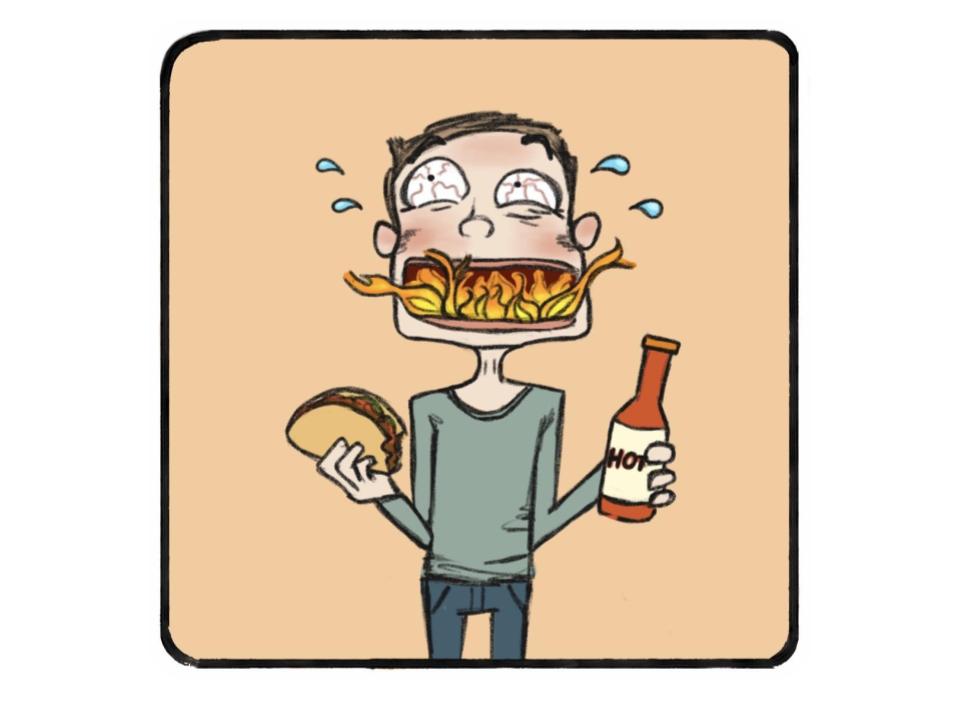
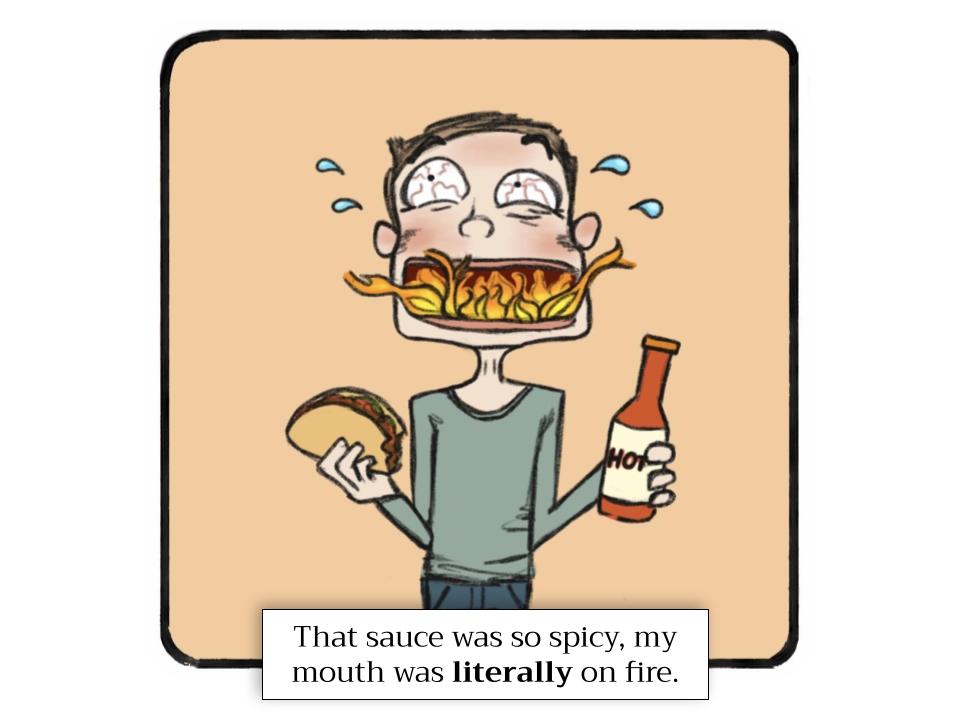

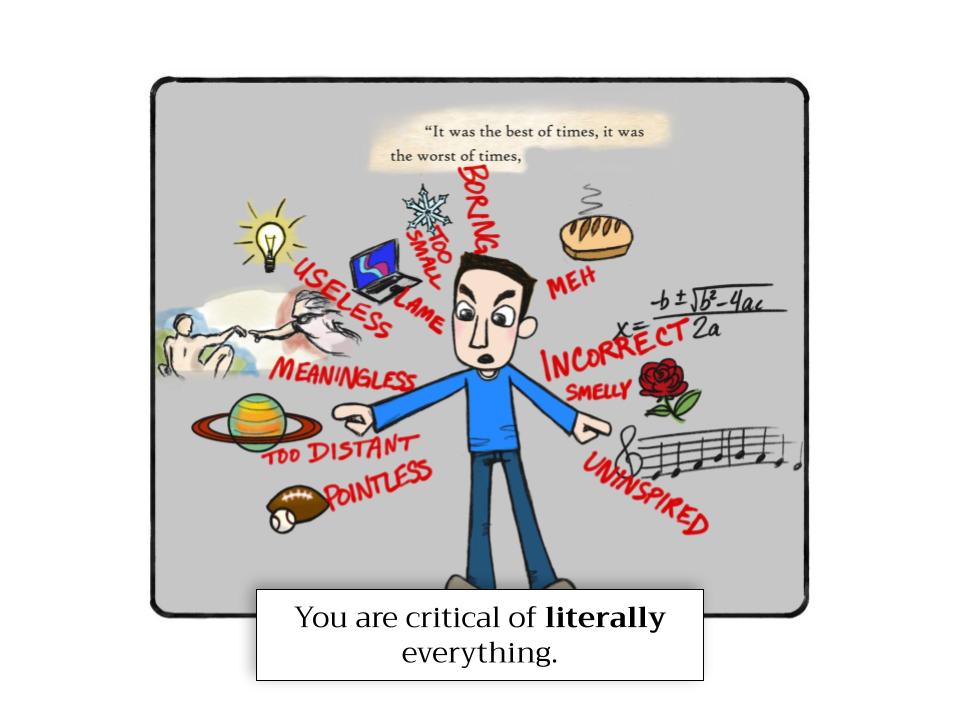
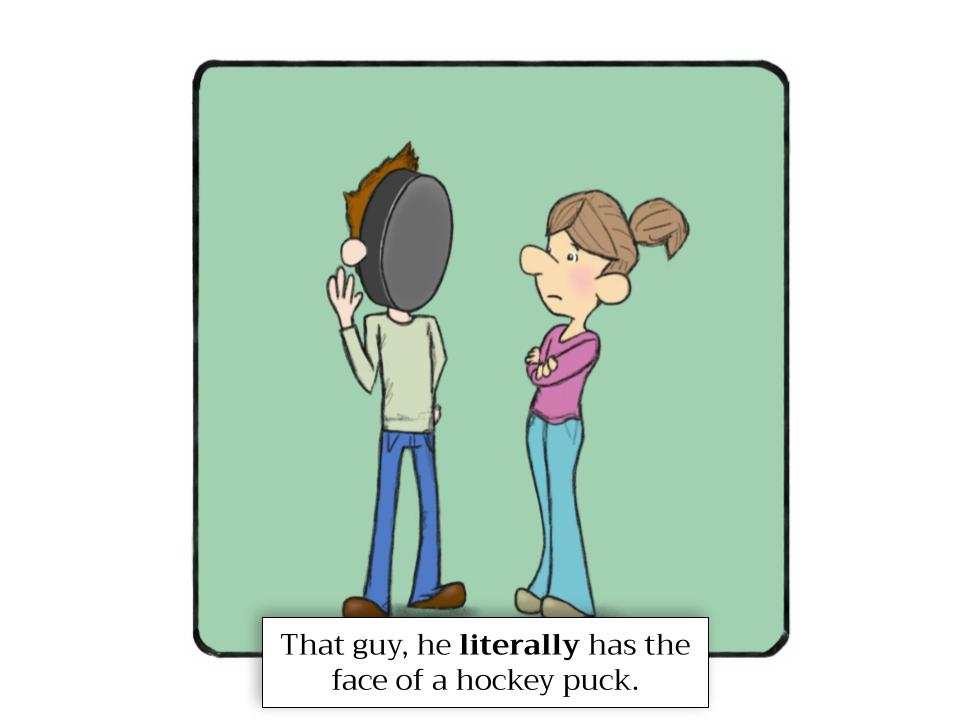
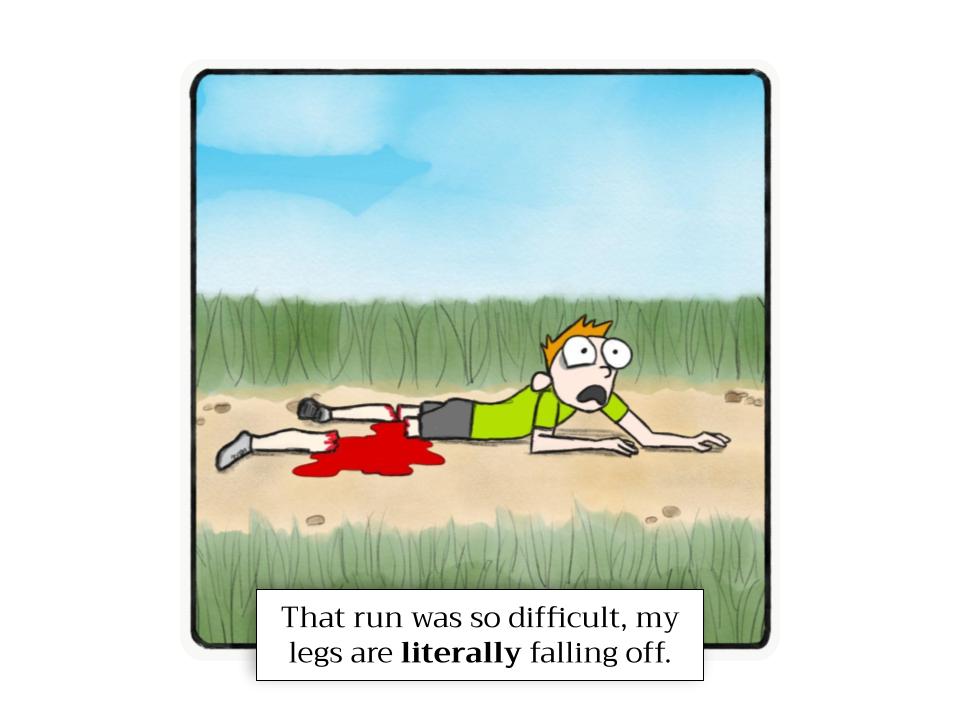
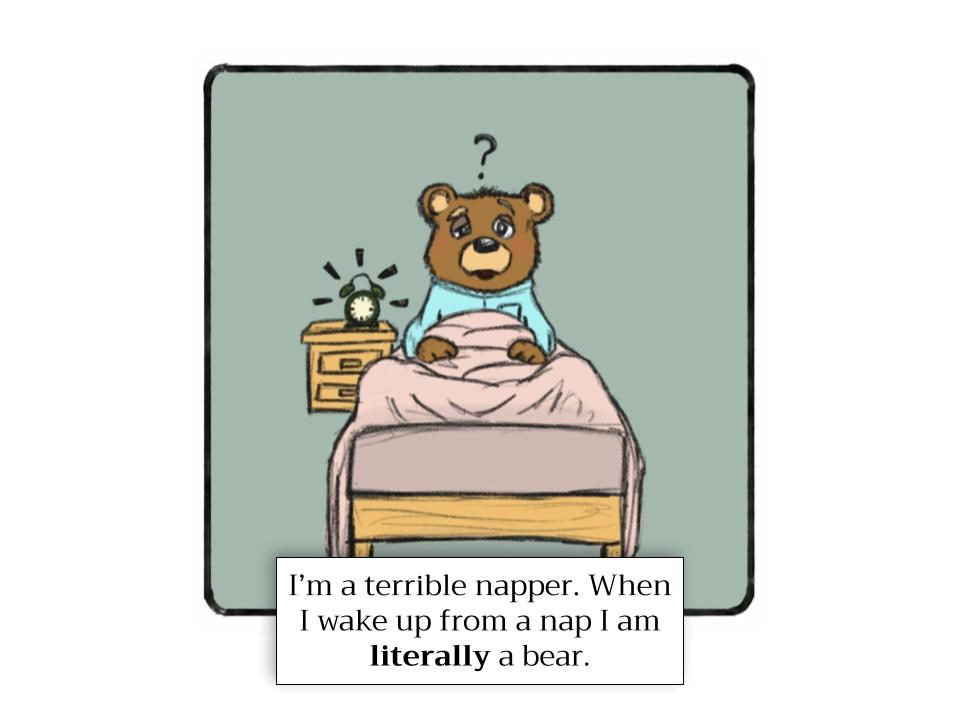
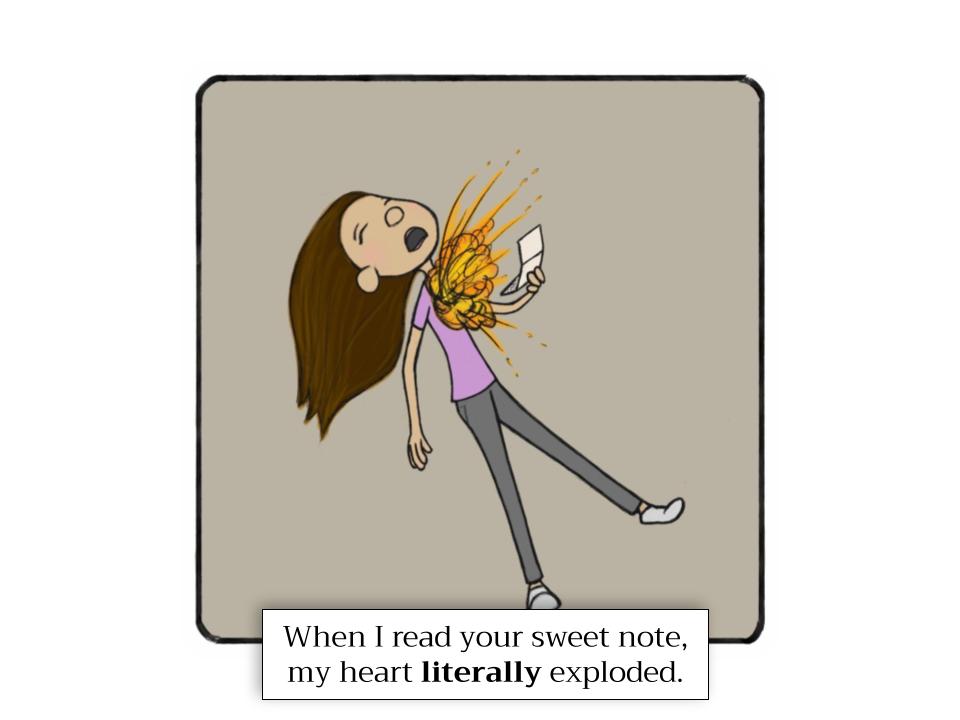

This is so good! you are a terrific writer, and great commentator on life.
Thanks Renee!! I got to see some fun things you’re working on today. Good stuff.
This LITERALLY made me laugh out loud. I really did. HA! 🙂 Another great blog post, Elisa!!
Literally laughing out loud is the kind of literally I can (figuratively) get on board with. 🙂
I literally liked this post a lot. It literally had me smiling and nodding all the way through. Totally! Ha! Another one of those misused words. Thanks for the smiles.
Thank YOU, Pauly!
I’m sure you’ve seen this, right? https://youtu.be/VhlLd9XzNxM
Um, NO, I hadn’t seen it before! But oh my gosh, it’s perfect.
So good. Thanks, Elisa.
You’re so welcome. And thanks. 🙂
This is awesome. Literally. I was guessing the critical comment was yours, ha ha! Love how you so perfectly conveyed how I feel every time I see those common grammatical errors. I truly have to bite my tongue if I want to keep friends!